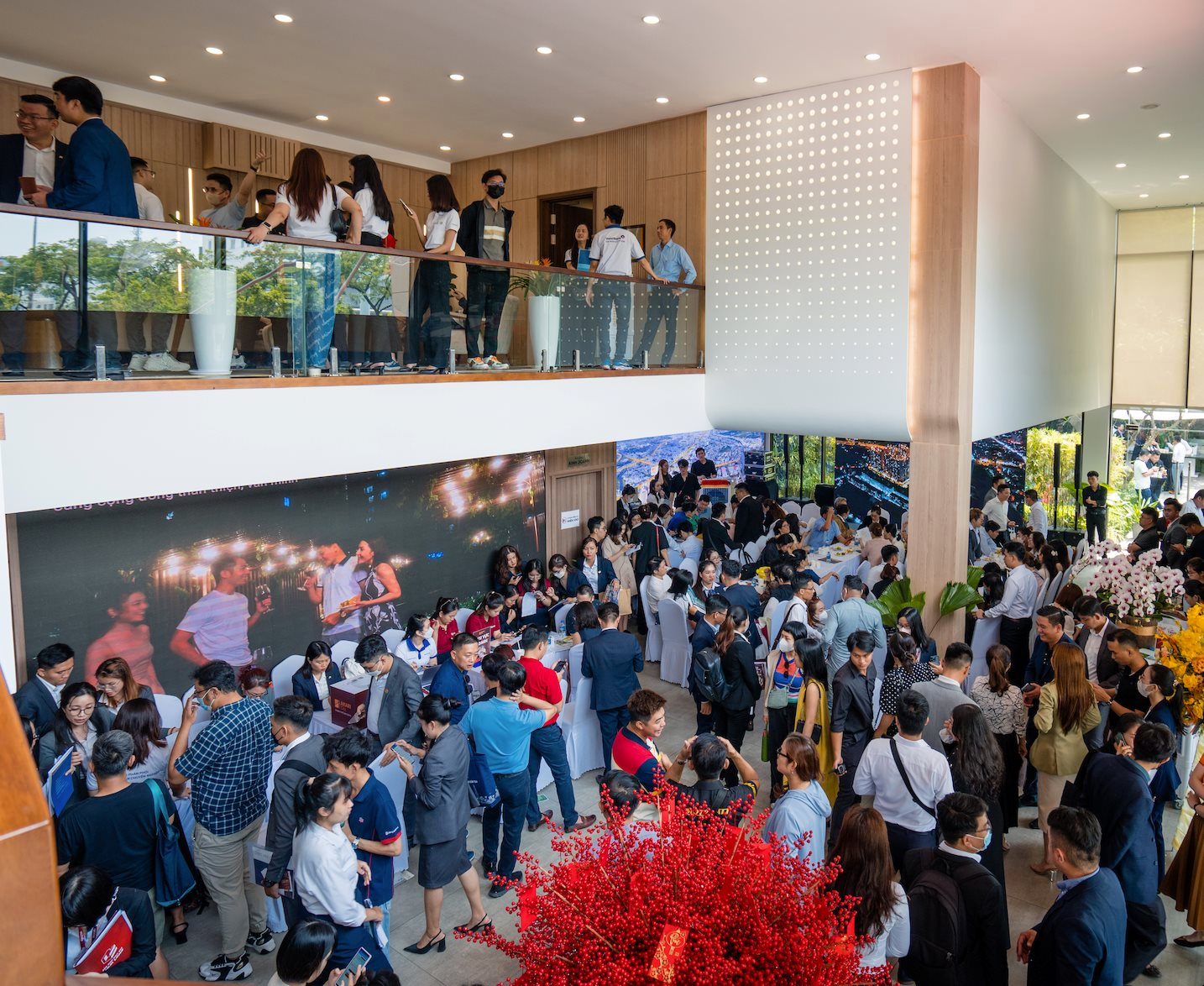Recently, when officially joining Nam Long Group, Mr. Lucas Ignatius Loh Jen Yuh – who has over 30 years of experience working for Asian organizations and corporations – shared his views on opportunities as well as challenges in the Vietnamese real estate market.
In particular, assuming the role of new General Director of a Vietnamese real estate enterprise in the context of a market with many fluctuations in supply and liquidity, he has had new insights into the current real estate landscape.
How do you assess the opportunities for the Vietnamese real estate market at the present time?
Mr. Lucas Ignatius Loh Jen Yuh: I assess that Vietnam’s economy has great potential and that the real estate sector here is in its early stages of growth.
A positive sign is the urbanization rate in major cities. This rate is about 38-40%, similar to the level recorded in China in the 2000s.
With the current urbanization rate, the demand for housing, offices, shopping malls, and commercial centers in Vietnam is huge. The number of industrial parks as well as critical infrastructure for the warehousing sector is still low. Infrastructure development will lead to the development of cities, opening up the possibility of attracting a large population. Therefore, cities such as Hanoi and Ho Chi Minh City still have a lot of room for development, which means opportunities for the real estate sector.

Mr. Lucas Ignatius Loh Jen Yuh, new General Director of Nam Long Group.
What difficulties do you face when assuming the role of new General Director of a Vietnamese real estate enterprise in the context of a general real estate market with many fluctuations in cash flow and liquidity?
Mr. Lucas Ignatius Loh Jen Yuh: I assess the current real estate market issues as being short-term. Opportunities remain as the real estate sector in Vietnam moves into a more “mature” phase. Real estate is no longer developing massively but has “ripened”. This places high demands on the meticulousness in product research and development by investors to meet real market needs, helping to balance supply and demand. This development is similar to that in Singapore, the US, China, and other developed countries in the past.
There are difficulties, but I expect to lead the business in seizing growth opportunities to overcome challenges during a period of market volatility.
You said: Real estate in Viet Nam is in the early stages of growth. So, in the coming time, will competition among real estate businesses be fiercer, sir?
Mr. Lucas Ignatius Loh Jen Yuh: In the future, increased land and housing supply will mark a new stage of competition among real estate developers. Businesses will seek to attract homebuyers by diversifying products, at which time aspects such as service, shopping experience, and brand become important. Instead of competing entirely on price, businesses will aim to create differentiation in terms of products and services.
At the same time, businesses must orient towards sustainable development for long-term survival. This sustainability relates to environmental, social, and governance (ESG) aspects. For the real estate sector, sustainable development is vital.
Sustainability appears right from the first steps, from master planning, land development, resettlement implementation, groundbreaking for construction, to landscape change. As investor demand changes, sustainable development is no longer a matter of choice for businesses but a market requirement and an indispensable factor.

According to Mr. Lucas, the huge demand for housing is the driving force for the growth of Vietnam’s real estate market.
Nam Long is one of such businesses. Building a sustainable urban ecosystem is the core strategy of the business, along with a stable financial structure to support long-term development strategies. We aim to create exclusive lifestyles for customers in every segment we develop. At Nam Long, my strength lies not only in strategic thinking but also in experience in the investment, mergers and acquisitions (M&A) sector, with many successful deals. I think that will be useful and suitable for the company’s growth plan in the coming time.
As you know, the Vietnamese real estate market has witnessed a long-term mismatch between supply and demand. Affordable housing is in high demand but is in short supply. Do you think this will improve in the coming period when the Government focuses on developing affordable housing?
Mr. Lucas Ignatius Loh Jen Yuh: As I said, the Vietnamese real estate market has many opportunities. First, Vietnam is a developing country, Vietnam’s economy is growing very fast, so the demand for real estate is still very high. 2024 also presents opportunities such as affordable housing segments, social housing. At the same time, reduced lending rates, new laws being issued, and government efforts will be drivers for the market.
With the current context, Nam Long Group’s leadership has determined that the business focuses on selling affordable housing products that meet market demand. In terms of finance, the business also aims to balance the capital structure, maintain a healthy financial structure; balance cash flow; focus on capital for project development and prioritize investing in segments that are suitable for the market, avoiding putting money into segments that cannot be sold.
We assess that the Vietnamese market demand is large, with a young population and a large number of immigrants. Nam Long has been developing this product line for 14 years and has found that affordable housing is a mass demand. Demand is still sufficient for the business to develop this business segment in the next 10-20 years. We are implementing this policy through the campaign “Bringing homeownership back within reach”.
I think that orienting towards developing affordable housing is also a way for real estate businesses to create competitiveness and develop sustainably and long-term in the market.
In early 2025, the laws related to real estate will take effect. How do you assess the impact of these laws on the Vietnamese real estate landscape in the coming period?
Mr. Lucas Ignatius Loh Jen Yuh: In my opinion, a better legal environment will allow for positive changes for the market in the long run, contributing to improving transparency and creating a more equal playing field for all businesses.
However, it is important that businesses optimize their internal strengths and plan for optimal efficiency management to adapt flexibly and in line with the new environment. That ensures the survival as well as the prosperity of the business.
Thank you for sharing, sir!












